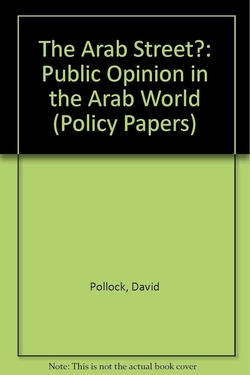 Pollock, a director of research at the United States Information Agency, has single-handedly opened up a new field of inquiry - how Arabic-speaking peoples view political developments. His beautifully presented study first analyzes the significance of public opinion, then concentrates on two specific issues, the Kuwait Crisis and the Arab-Israeli conflict.
Pollock, a director of research at the United States Information Agency, has single-handedly opened up a new field of inquiry - how Arabic-speaking peoples view political developments. His beautifully presented study first analyzes the significance of public opinion, then concentrates on two specific issues, the Kuwait Crisis and the Arab-Israeli conflict.
Pollock sees Western assessments of Arab public opinion falling into two extreme camps. One dismisses it, in the absence of democratic institutions, as politically irrelevant. The other sees "the Arab street" as perpetually about to overthrow the government and institute popular revolution. The author argues for a middle interpretation: noting that "there is often an interaction between popular attitudes and policy outcomes," he holds that Arab states usually pay close attention to the views of their publics. They even consult opinion polls.
Pollock uses polling data (privileged information, unfortunately, and so not sourced anywhere in the study) to show that governments basically followed popular opinion during the Kuwait Crisis. Indeed, he argues that the absence of Jordan and Yemen helped the anti-Iraq coalition, for their governments might otherwise have been overthrown. With regard to Arab-Israeli negotiations, he sees Arab publics as "positive in principle, skeptical on specifics, but also only intermittently very interested, except where it hits close to home." Turning to U.S. policy, he suggests understanding for Amman's position vis-à-vis Israel but lots of pressure for change on the Persian Gulf states.